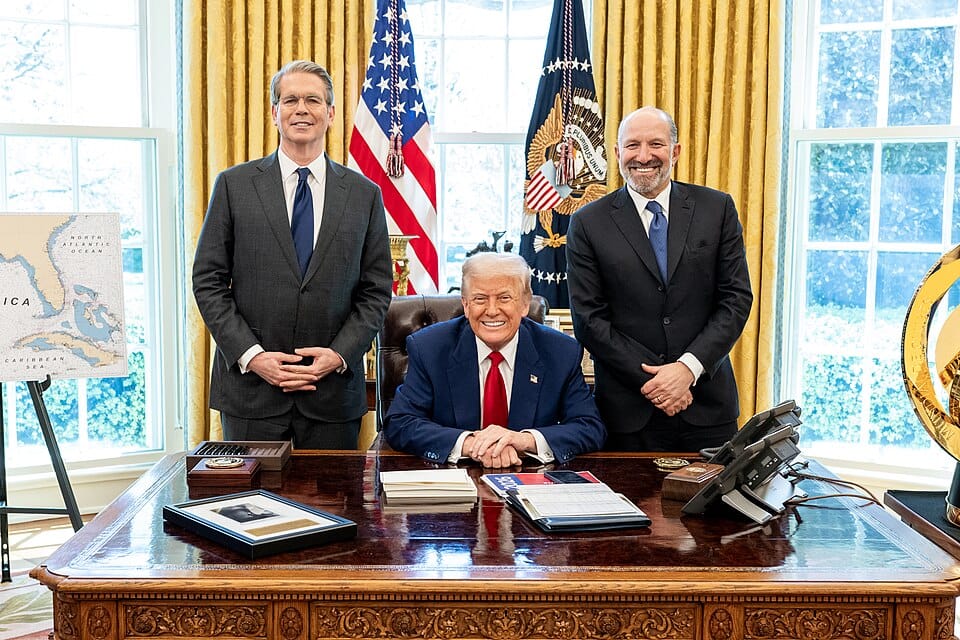Why Walmart Can't Pay The Tariffs, And To Ask Is Absurd

Over the weekend, Treasury Secretary Bessent and President Trump suggested that the solution to Walmart's higher prices is simply to have Walmart pay for the new tariffs.
After all, Walmart's net profit in its latest fiscal year (completed in January) was $20 billion. Surely, that's enough to pay for any new Trump Tariffs with a little left over. At least, that's what the President and Treasury Secretary would have us believe.
It's an argument that I've been hearing my entire adult life. Usually, it's used by the critics of capitalism, who argue that "capitalists" are so wealthy that they can afford any specific new program or expense that the critic may wish. Often, things like "universal health insurance" or a "basic income for all" are their suggestion.
What's unique this time is that this suggestion comes not from the political left but from politicians who ostensibly lean to the right, usually the more pro-capitalist side of the spectrum.
The White House is reacting to the public's adverse reaction to President Trump's universal tariff policy, a policy designed to impact all countries that export to the United States. But a policy that will hit, first and foremost, China, our most significant trading partner.
Moreover, the country's largest retailer, Walmart, reported that these new tariffs will cause prices to rise in all its stores and outlets. It's estimated that Walmart receives 60 – 80% of all its goods from China. According to Walmart, the President's new tariffs are igniting a vicious cycle of inflation, and its customers are freaking out. Walmart shoppers are outraged, and many were Trump voters.
The Administration needed a quick answer, a way to assuage the fears of American consumers.
What better way than to point to Walmart? After all, it's "rich. " Remember that $20 billion plus profit last year?
So, let's do a little digging to see just how "rich" Walmart really is and whether it could sustain the added tariff expense.
The Peterson Institute for International Economics reports that the current Trump Tariffs on all Chinese imports are 32.6%. (We won't go into the details of the up-and-down negotiations that led to this level.)
https://www.piie.com/research/piie-charts/2019/us-china-trade-war-tariffs-date-chart
The latest Walmart Income Statement (January 31, 2025) reports net sales of $674.5 billion.
https://stock.walmart.com/financial-information/income-statement
Further down on the Income Statement, Walmart reports a net profit of $20.2 billion.
You've undoubtedly seen the problem: Walmart's profit margin is less than 3%, a level consistent with most supermarkets, grocery stores, and many online retailers. Profits in the consumer sector of the economy are notoriously skimpy.
Yet somehow, the President and Secretary assert that Walmart ought to subtract a 32% tariff from its 3% profit margin. This is absurd.
It's interesting to note that the real beneficiary of the new tariffs is not the Walmart customers, not Walmart, but Washington.
So, here's how tariffs would work on Walmart sales.
If Walmart can reduce its Chinese imports to just 50% of its total sales, based on last year's sales, that would be $337 in annual sales.
We now know that all of those imports would be subject to a 32% tariff, which would mean that those goods would have a tariff of $108 billion.
That's $108 billion that would flow directly to the US Treasury.
Now, don't get me wrong. I'm not against the US Treasury getting more money; heaven knows we could use it. Perhaps this really is a good way to reduce our debt.
But don't try to sell us on the erroneous proposition that Walmart can somehow pay a $108 billion tariff with $20 billion in income.